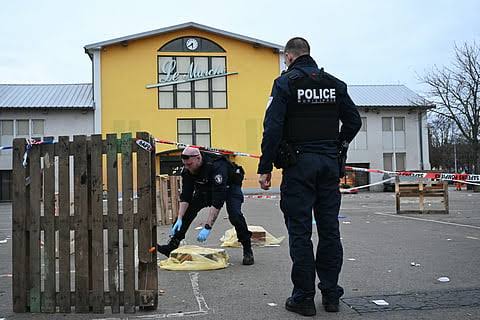
On Saturday, a tragic incident unfolded in Mulhouse, a city located in eastern France, where a 37-year-old Algerian man committed a violent act that resulted in the death of an elderly Portuguese individual. The assailant, armed with a knife, not only fatally attacked the victim but also injured five police officers who responded to the scene. The swift action of law enforcement ultimately led to the apprehension of the suspect, who was subsequently taken into custody.
Forensic specialists have since revealed that the attacker had been diagnosed with schizophrenia, raising questions about his mental health and the circumstances that may have contributed to his violent behavior. This diagnosis adds a complex layer to the incident, as it highlights the challenges of addressing mental health issues within the context of violent crime.
In the aftermath of the attack, French President Emmanuel Macron condemned the violence, labeling it an ‘Islamist’ attack. This characterization has sparked discussions about the motivations behind the assault and the broader implications for national security and community relations in France, particularly in light of ongoing concerns regarding extremism.
Furthermore, French Interior Minister Bruno Retailleau disclosed that the authorities had made multiple attempts to extradite the assailant back to Algeria, where he is originally from. However, these requests for repatriation were denied by the Algerian government, raising concerns about the effectiveness of international cooperation in addressing such cases. The incident has reignited debates about immigration, security, and the responsibilities of nations in handling individuals who may pose a threat to public safety.
Read more: France thrash Italy to set up Six Nations showdown with Ireland
As investigations continue, the community in Mulhouse and beyond grapples with the shock of the violence, while officials work to understand the underlying factors that led to this tragic event. The incident serves as a stark reminder of the complexities surrounding issues of mental health, extremism, and the challenges faced by law enforcement in preventing such acts of violence.



